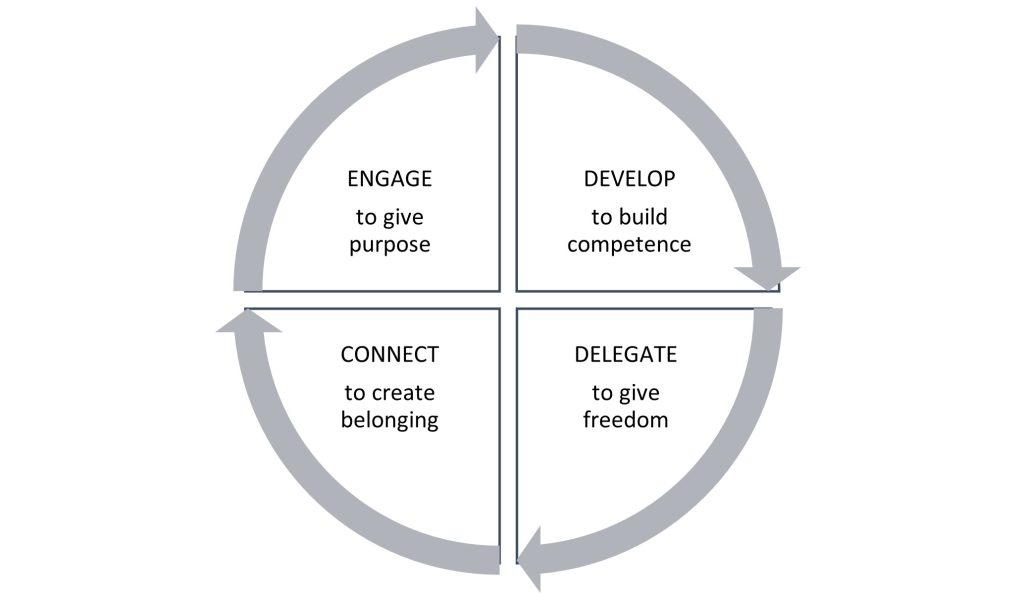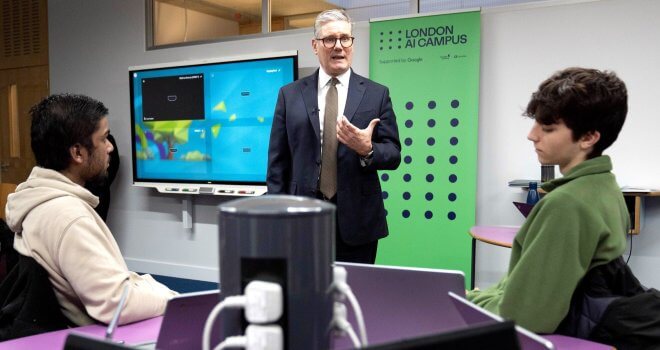Four Questions For Every Project Manager

Project Managers are usually naturally task-orientated – they like to get things done, they are used to working to plans and deadlines, and they expect to overcome problems along the way. They have the right mindset. Even so, they can sometimes struggle to stay motivated themselves or to motivate their teams.
Motivation comes from having a sense of purpose, being persistent despite difficulties, and being resilient through setbacks. How you behave – what you do and say – as a manager has a big impact on how your team think and feel, and on how persistent and resilient they are.
Here are three questions to ask yourself:
- What causes you stress at work?
- What’s your worst habit as a manager when you are under stress?
I’ll come to the third question shortly.
You probably know the answer to the first question already. When I ask this question, managers usually mention:
- Too much to do in the time available
- Unexpected demands from others
- Competing priorities
- Unrealistic expectations and deadlines
When I ask the second question, they often admit to:
- Showing impatience
- Not listening
- Not making time to connect with their teams
- Doing too much themselves instead of delegating
The third question to ask yourself is:
- Are these the best behaviours to enable your team to perform at their best?
I suspect you know the answer to that one too!
Managing the people is as hard as managing the project: You must get their commitment to the purpose of the project; you have to build their confidence and coach them through difficulties, so they persist; and you have to be empathic and role model helpful habits and resilient behaviours.
Question number four (ok, I know I said three questions, but this one is key) is:
- What do you need to do to engage people in the purpose of the project, and enable them to persist and be resilient?
In a nutshell you need to: Engage, Develop, Delegate and Connect.

Fig. 1. Leadership Capabilities
Here are my top tips for how to do this, so you have a motivated, persistent, and resilient team.
Engage to give purpose
There is lots of evidence that we need purpose – many people who retire subsequently unretire. They want a meaningful activity. We need to feel that what we do matters – that it relates to something beyond our selves. As a project manager, you can:
- Set and agree meaningful goals with your team members.
- Find out what they enjoy, what inspires them in their jobs.
- Work with the team to create a team purpose.
- Show the golden thread between their roles and the bigger picture
Develop to Build Competence
We all want to feel that we are good at our jobs and that we are respected for our competence. If we feel competent, we also feel confident, which means we perform better and are more likely to persist. So how can you build people’s competence and confidence?
- Focus on strengths – in most cases, you get better performance when you focus on strengths. Strengths are motivating, weaknesses are not.
- Make feedback a positive and expected experience – don’t use the dreaded words “I want to give you some feedback”.
- Be disciplined about scheduling 121s – make them a priority.
- Give five times the amount of positive feedback as negative to build self-belief, (unless there is a performance problem). This is because we naturally pay more attention to the negative.
- Use the “do it and review it” approach to learn from situations – what went well/not so well/what to do differently next time.
Delegate to Give Freedom
We have a psychological need for freedom, and when we have some freedom over how we do our jobs, and accountability for the results, we are more likely to persist. Think about what you can do to give people more choice and control over their work.
- Let them set their own goals and plans to achieve them.
- Clarify roles, responsibilities, and accountability.
- Give some freedom and choice in how, when, where they work.
- Delegate areas of responsibility when you can – with support.
Connect to Create Belonging
We are social beings. Feeling that you belong to a team, a group, an organisation, is a fundamental part of our social existence. There is evidence that having connections with others makes people more resilient. This can be more difficult with remote and hybrid teams. What can you do to create connections?
- Have times when you bring the team together in person ie schedule when you are all in.
- Make time for chat in the team and casual conversations eg open calls 15 mins early, have “tea at three” virtual sessions where anyone can drop in.
- Always use face to face for difficult conversations.
- Show empathy for problems and make time to talk.
- Remember to look after your own physical, mental, and emotional health – if you are struggling, this will ripple out to your team members.
These leadership capabilities – Engage, Develop, Delegate and Connect – answer that fourth question about what practical behaviours you can implement to keep your teams motivated and performing at their best. For more ideas, see my book: Motivation: The Ultimate Guide to Leading Your Team.
Catherine Stothart is a Leadership Coach working with multi-national companies including Airbus and Google. Her best-selling first book, How to Get On with Anyone, (2018, Pearson) is a guide to understanding others and communicating with confidence and charisma.
Her latest book, Motivation: The Ultimate Guide to Leading your Team, sets out how to lead others to fulfil their purpose and potential. Readers can get 20% off for orders placed by 31st December, using discount code FLE22.
Follow Catherine on LinkedIn and Twitter and sign up for her monthly Mastering Motivation newsletter for practical ideas and insights on working and living with others.




